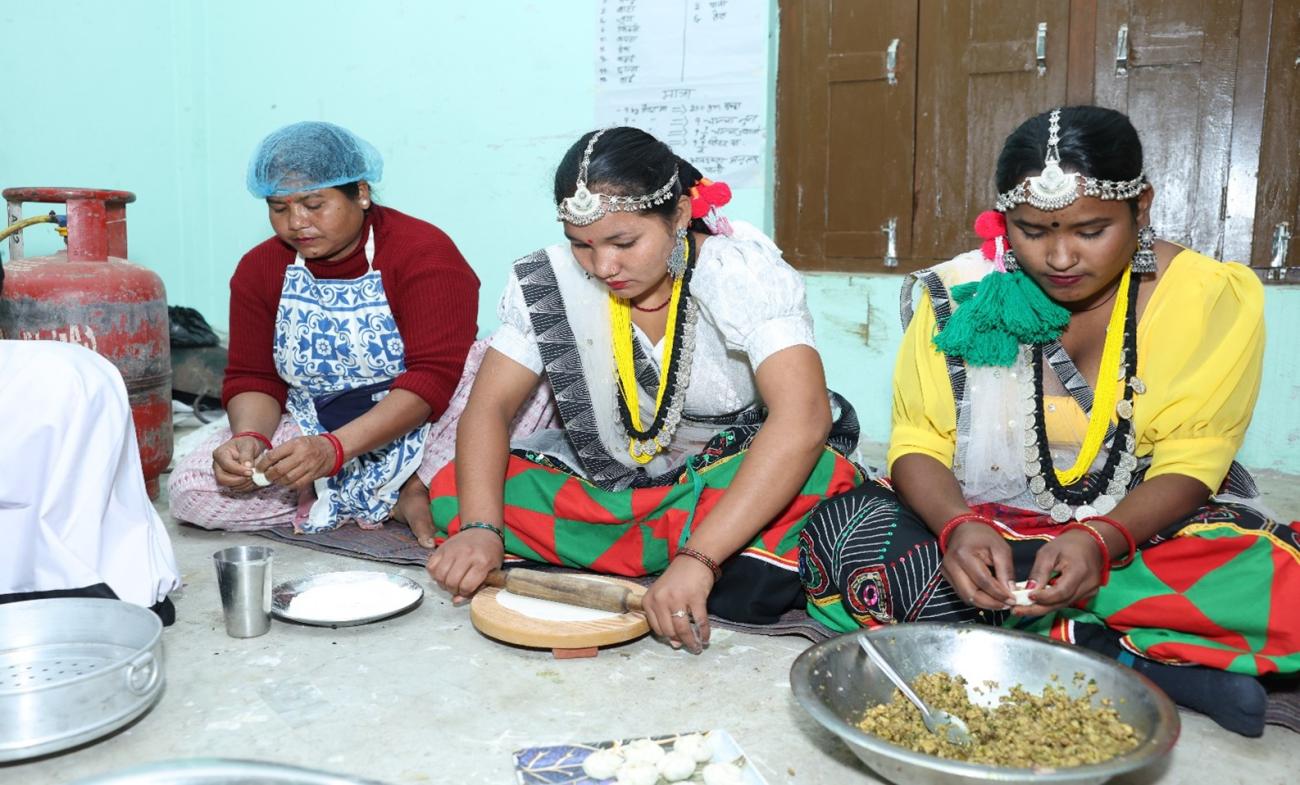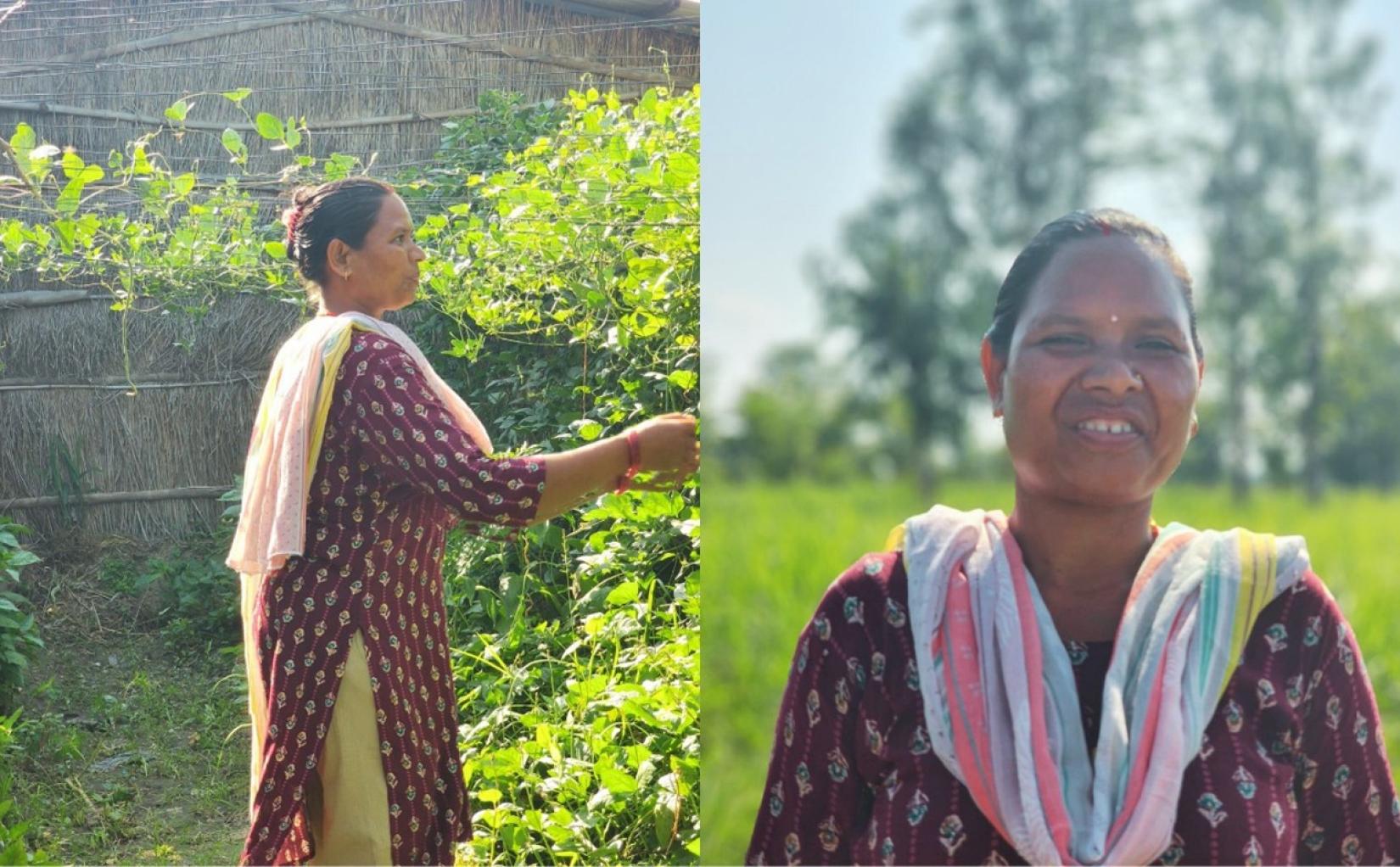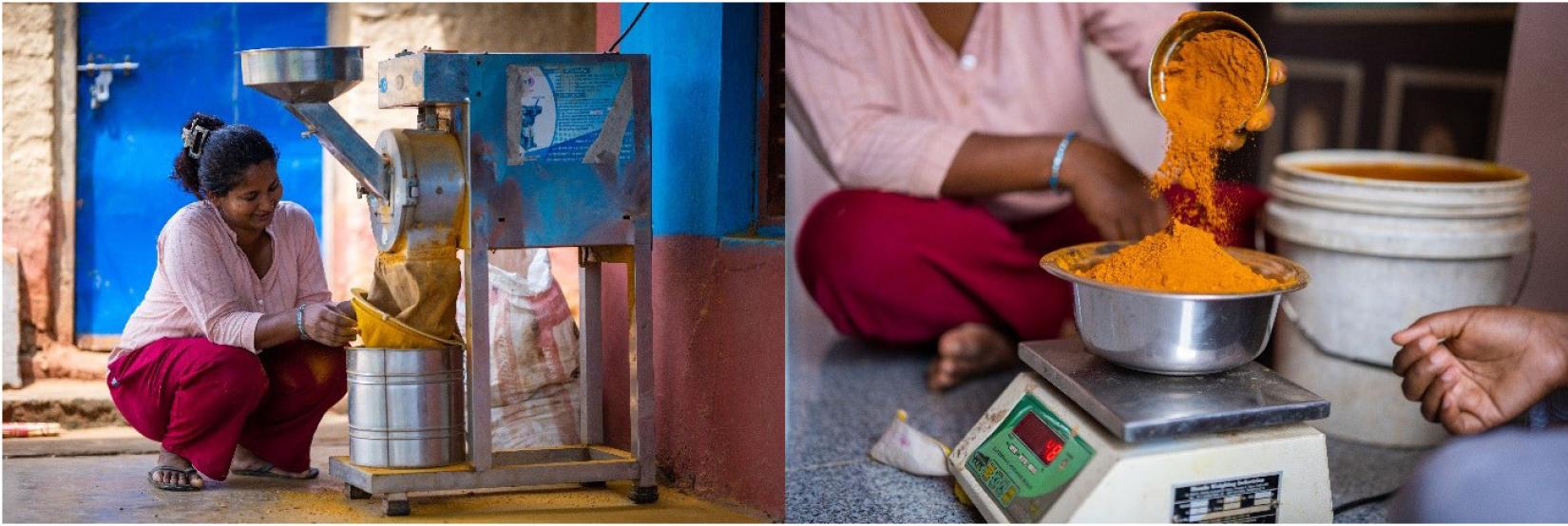Building an inclusive economy through women-led businesses

Empowered Women, Prosperous Nepal is a four-year joint initiative (2023–2026) by the Government of Nepal, the European Union and the United Nations.
At dawn in Belauri Municipality, northeastern Nepal, the rustle of vegetable leaves and the hum of water pumps signal the start of another productive day for Nisha Devi Chaudhary. Once dependent on her husband’s migrant remittances, she now grows seasonal vegetables like cabbage, chilies and tomatoes on her family’s land, which spans about 1,000 square metres.
After completing a vocational training in vegetable farming supported by the Empowered Women, Prosperous Nepal (EWPN) programme, she gained new agricultural skills, access to organic inputs and market information. Today, she earns USD 260 to 300 per month, an increase in income after EWPN’s intervention. She is now planning to lease more land to expand her farm.
“I no longer wait for money to come from abroad. I am earning with my own hands and feeding my family with what I grow,” she says, standing proudly next to her in-progress tunnel farm, partially funded by a seed grant from the programme.

Chaudhary’s story is not just a personal triumph, it is emblematic of a broader shift sweeping across Nepal. As the country prepares for graduation from Least-Developed Country (LDC) status in 2026, its path to inclusive economic growth increasingly hinges on the empowerment of women like her. And the role of micro, small and medium enterprises (MSMEs), particularly those led by women, is central to this transformation. Anchored on SDG 5 (on gender equality), SDG 8 (on decent work and economic growth) and SDG 10 (on reduced inequalities), Nepal’s transition will only be sustainable and irreversible if it is gender responsive.
Across Madhesh, Karnali and Sudurpaschim Provinces, women’s voices are influencing local economic decisions, shaping municipal plans and claiming their space in markets. In Belauri, a group of 16 women has turned a local opportunity into an enterprise by producing traditional sweets and snacks near the scenic Shova Lake, linking their products to the region’s emerging tourism value chain. Supported by the EWPN programme with training and business coaching, the group has also formed a savings and credit association to reinvest in their venture.
“We save every month and decide together how to grow our business. This is not just about income, it is about our unity and our decision-making power,” shares Rita Chaudhary, one of the women entrepreneurs.
In Birgunj, a group of 20 women trained in stitching now produce school uniforms in a workspace constructed and equipped by their local ward office. Their products are directly linked to the Government’s school uniform distribution programme, providing them with stable income while fulfilling a public need.
“Before, I used to earn a little. Now, I work full-time with dignity. My uniform goes to children who could not afford one otherwise. That makes me proud,” says Khusboo Kumari Patel, a member of the stitching group.
These achievements reflect the systemic change that EWPN was designed to catalyse. As of May 2025, 569 women, primarily from marginalized and underserved communities out of 1,500 targeted participants across the three provinces have received Council for Technical Education and Vocational Training-certified vocational training in agriculture, textile, arts and food-based trades complemented by business coaching, seed funding and market linkages support. Many of them come from historically marginalized communities: Dalit, Janajati, Muslim, Madhesi and returnee migrant households with limited income, land and formal education. Of the 136 women trained through the programme, 39 per cent have already launched or expanded income-generating activities with support from local institutions and value chain actors.
Beyond economic gains, EWPN-supported opportunities are shifting social dynamics and power relations within households and communities. As women begin earning and contributing to household income, they are stepping into new roles as decision-makers and community leaders.
“Once I started earning, I found the confidence to speak up at home and in community meetings. Now, I feel my voice is heard,” says Saraswati Sunar, from Birendranagar, who now co-manages a collective turmeric farm after training through the EWPN programme.

“This used to be the shed where I stayed during menstruation, isolated because of an old tradition,” says Khagisara Acharya Karki, a poultry farmer from Dailekh. “Now, it’s where I raise chickens and run my business. EWPN didn’t just help me earn, it helped me leave behind a harmful practice and reclaim my space.”
Several women have gone on to lead savings groups, advocate for community services and represent their cooperatives in local dialogues. In doing so, they are actively influencing decisions that affect their lives and communities. By positioning women as visible economic actors, the programme is not only strengthening the economic security and rights of women but also challenging entrenched gender norms.
To enable this shift, EWPN partners with federal, provincial and local governments to embed inclusive economic models into policy and practice. In Dhangadi, for example, the local government launched a weekly women’s market, offering 75 stalls to women entrepreneurs from informal sectors. Technical support from EWPN ensured gender-sensitive design and operational guidance, turning policy into real economic opportunity.
The programme also facilitated the provision of equipment through local cooperatives and farmer associations, promoted digital finance training and supported inclusive planning processes ensuring that women were not just beneficiaries but co-creators of their communities’ economic future.
With continued commitment, these systemic supports will ensure that gains made under EWPN become a springboard, not a ceiling, for Nepal’s inclusive growth.
In Birendranagar, Sushila Tharu stands at the doorway of the Patalganga Tharu Community Homestay, welcoming visitors with quiet pride. For over six years, the initiative has not only created income, but built identity and dignity for Tharu women in her community. Through the EWPN-supported 18-day hospitality and culinary training, she and other women enhanced their skills, experimented with authentic Tharu recipes, and deepened their understanding of cultural tourism.
“I no longer have to ask my husband for money,” she says. “This homestay has shown our community and ourselves that when women are given the opportunity, we lead.”

Looking beyond 2026, UN Women Nepal envisions a resilient national economy where women-led MSMEs are not exceptions, but anchors.
About the programme:
Empowered Women, Prosperous Nepal is a four-year joint initiative (2023–2026) by the Government of Nepal, the European Union and the United Nations to advance gender equality and inclusive economic growth. The programme is implemented by four UN agencies (ILO, UNFPA, UNICEF and UN Women) across Madhesh, Karnali and Sudurpaschim Provinces, in close partnership with all levels of government.





